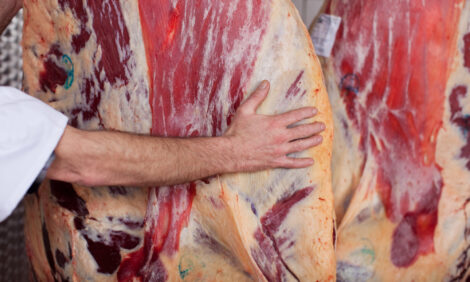



Cattle Owners Encouraged to Monitor Herds for Infection
LAKEWOOD – The Colorado Department of Agriculture encourages cattle owners to monitor their herds for Bovine Trichomoniasis. “Trich” is a costly, yet preventable, infection that can affect dairy and beef cattle.“One infected bull can ruin the entire breeding season; 80 to 90 percent of cows bred to an infected bull will then become infected.”
Colorado State Veterinarian, Dr. John Maulsby.
Bovine Trichomoniasis is a venereal disease of cattle caused by Trichomonas foetus (T. Foetus.) The T. foetus infection causes fertility problems, such as early embryonic death or abortion of the calf, and is asymptomatic in bulls. Infected bulls can infect cows during breeding season; the infection will clear in cows but there is no cure for infected bulls.
“This is the time of year when ranchers are able to monitor their herds. I encourage cattle owners to keep a vigilant look out for decreased pregnancy rates while they are preg-checking this fall,” said Colorado State Veterinarian, Dr. John Maulsby. “One infected bull can ruin the entire breeding season; 80 to 90 percent of cows bred to an infected bull will then become infected.”
Colorado trich regulations require all non-virgin bulls changing ownership or being transported into Colorado be tested for T. foetus unless the animal is going to slaughter. Bulls on public land grazing permits or with grazing associations must also be tested prior to turn-out.
“A good rule of thumb is to purchase virgin bulls or those that have been properly tested,” said Maulsby.
Several diagnostic laboratories across the state offer trich testing; samples must be taken by an accredited veterinarian and results will be available between 4 to 6 days.
TheCattleSite News Desk


